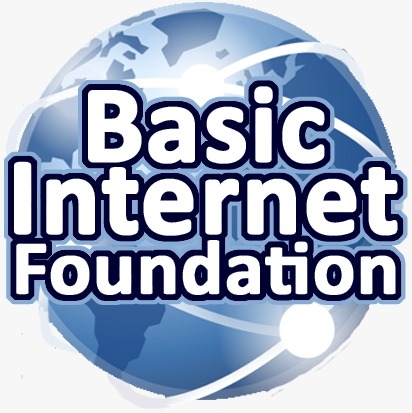Information Spot (Non-discriminating access for Digital Inclusion)
il y a 4 ans
Non lucratif
Recherche partenariat
Recherche partenaire principal
We, the Basic Internet Foundation, create the solution to connect the Billion people who are not connected to the Internet. Being left-out from the Digital Society removes the capabilities for reaching higher levels of the Maslow pyramid, meaningful work. DigiHealth focuses on “connect the unconnected” from low income, rural, suburban within developing economies, though promote that “every single human should have free access to information on the Internet”.
The implementation of free access to information enable people in the bottom of the pyramid to get part of the digital society, and can gain digital skills. Through access and skills for everyone Internet Lite opens for knowledge uptake needed for decent work, gender equality, better health and education.
When providing Internet in areas with low availability or high costs the focus is on getting as much information as possible through a thin (or bandwidth limited link). Examples of such low availability links are satellite links, bad coverage from mobile networks or congested mobile networks.
The project provides solutions (InfoSpot) which optimise the information stream such that a high amount of information can be provided. This information optimisation is done in the Basic Internet Core Network or through technologies of our partners.
The established infrastructure is cost effective, with a local InfoSpot costing not more than a mid-size mobile phone (~400 USD), and provides free access to information. The remote management system, established solely through OpenSource software, supports the freemium model.
The InfoSpots, established as mobile network end-points, carry bandwidth-demanding information like videos, and are the most cost-effective solution for constrained environments. With operational costs (OPEX) of less than 20 USD/month we provide free access to information on the Internet.
The freemium model for access is seen as the main intervention counteracting the digital divide, as it provides free access to information for all.
Through the digital innovative information spots (InfoSpot) we address the need for capacity building on digital connectivity, Internet Lite for all.
Our distributed architecture opens for a quick deployment of a cost-effective Internet distribution worldwide, allowing for:
- A reception of a 3G/4G network even in areas with no connectivity. Our examples have proven that we connect even in places without connectivity.
In short, the functionality is as follows:
- The Internet link reception is either performed through a directive link, or through re-using the mobile 3G/4G/5G network. The link directly feeds the LNCC.
- The Local Network Control Centre (LNCC) performs the filtering for the freemium access, with free access to information begin text, pictures and local information from the Society Server, and premium access to bandwidth-demanding services from the Internet. The LNCC is connected to the Society Server for access to free local content, and provides this information to the Multipoint antenna.
- The Society Server () contains information such as health, education and entrepreneurial information, being freely available for everyone in the society. - For educational purposes, we recommend setting up Moodle, see link to Moodle usage.
-
InfoSpot addresses access, skills, and inclusion. Given that only 50% of the world population is unconnected and live in rural areas in Africa South of Sahara (SSA) are participating in the digital society, information about the crisis, as the video on COVID-19.
By creating InfoSpots with digital health information, we can influence both knowledge uptake, increase digital literacy through digital health, and thus contribute to a timely response to an outbreak reaching every single person in the society. What will be executed through the following activities:
*Creating free digital public goods portal
*Establishing content in health, education and innovation, and adapting it to the specific requirements
*Intervention: providing free access to digital information through local information spots at schools, dispensaries, and community centres.
Our research has demonstrated that digital health provided through InfoSpots is the enabler for digital skills. By adding information on education, agriculture, best praxis and other content of the knowledge portal we create the base for digital inclusion and societal empowerment. Through the freemium model we address “leave no one behind”, and through digital champions identified in each community, we create the local involvement needed for value creation in the society. Our roll-out is community driven, where local communities are the drivers for the roll-out and the involvement.
The InfoSpot main goal is to empower women and youth for real societal ;Catherine R. Kimambo is an excellent example of the young generation in Africa, longing for the change. The educates girls towards the "digital life", and - she connects villages using the Basic Internet ;This example from Kipara'nganda in Tanzania shows how she, together with her team, established an Information Spot with free access to information for all.
For further reading :
- Our web site
- Our Wiki
- Technical Solution
- Publications
- And the overview we presented to UNDP: :UNDP BasicInternet_information_exchange_Jan2020#Basic_Internet_Focus





S'il vous plaît Se connecter pour voir cette section